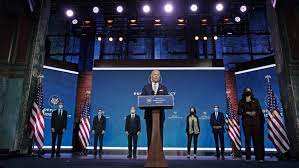By Jianli Yang
Elon Musk is back in the headlines this week. The founder and CEO of Tesla contributed a piece to China Cyberspace, the official publication of the Cyberspace Administration of China, which is the government’s cyber censorship arm. It’s a big deal, and proof of how deeply entangled Musk is with a regime hostile to free speech, and to the human rights of its people more broadly.
Worse, Musk’s closeness with the Cyberspace Administration of China raises important questions about whether Musk, who has a Giga factory in China and has taken over $1 billion in loans from the country, has fallen prey to China’s Military Civil Fusion disclosure laws. And the stakes are high: Is Musk supplying China with classified information he gains by working with the U.S. space program and other national security-sensitive projects?
Not only does the Cyberspace Administration of China control and often choke the flow of information into and out of the country, but it also provides data security for Tencent, a giant logistics conglomerate controlled by the Communist Party of China that owns 5 percent of Tesla.
The scale of Musk’s operations in China makes him vulnerable to intimidation by its communist leadership, and should make us wary of his pending deal to buy Twitter. Do we really want Twitter’s owner to be someone entangled substantially with one of the most repressive governments on earth, one with a long history of forcing private companies to serve its interests?
Twitter is banned in China, along with many other media companies that don’t toe the party line. But some Chinese dissidents do manage to use the platform inside the country, as do many outside the country to coordinate resistance. While Musk initially claimed to be a free speech absolutist, on April 27, he clarified that he would comply with the government laws that restrict free speech.
Of course, Musk is far from the only tech magnate who has raised concerns. Amazon has catered even more directly to the censorship needs of the Communist Party of China, like when it partnered with a propaganda arm of the government to market a collection of President Xi Jinping‘s speeches and writings published on a Chinese website in 2020. When Amazon customers began to publish unflattering reviews of the collection, the Chinese government ordered the reviews removed and the comment feature disabled for not just this but all products sold in China.
Moreover, the CCP has partnered with Amazon on a project known as China Books, which offers 90,000 Chinese books for sale but generates little revenue. The project is widely seen as a sop to keep the government happy so Amazon can function. The company stated in an internal document back in 2018 that “ideological control and propaganda is the core of the toolkit for the Communist Party to achieve and maintain its success. We are not making judgment on whether it is right or wrong.”
Meanwhile, Google is working on a China-only search engine that will black out websites and search terms the government considers threatening—like those pertaining to human rights, democracy and religion.
And Twitter has worked with the Chinese Communist Party to whitewash the abuse of the Uyghurs at the hands of the Chinese government. According to reports, Twitter promoted more than 50 tweets from the Global Times, a Chinese state-run media outfit, that deliberately mislead users on how the Uyghurs are treated in the detention camps in which they’re forced to live.
Every day, we see stories of corporations making the choice to participate in everything from censorship to masking drastic human rights violations, in order to retain access to China’s lucrative market of 1.3 billion people.
This article first appeared in Newsweek on 08/22/22
























